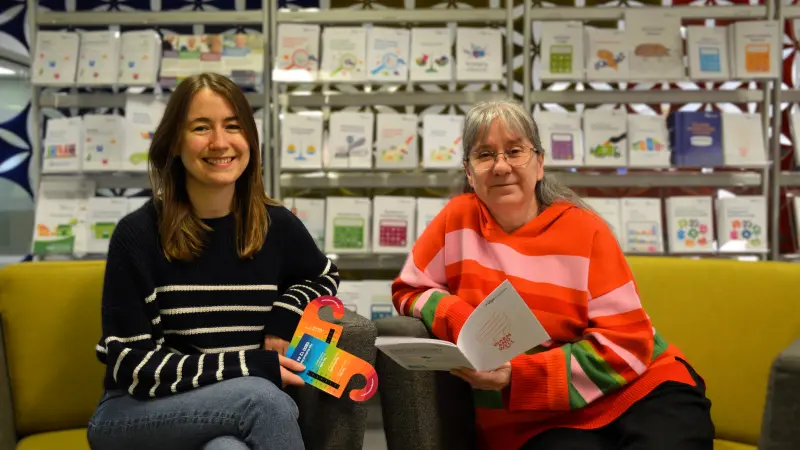A day in the life of an Unpaid carer: June's story

To shine a light on the invaluable work of unpaid carers who dedicate their time, energy, and love to looking after their loved ones, we spoke to June, who kindly shares a 'day in her life' with her husband Jim.
June Anderson looks after her husband, Jim, who lives with dementia. Her role is exhausting and emotionally challenging, yet she approaches each day with patience, resilience, and deep care. Here, June shares what a typical day looks like for her, offering an honest insight into the realities of unpaid caregiving.
Please note, this is one person’s lived experience as an unpaid carer. It may or may not represent your own experience. Age Scotland is always open to hearing other perspectives.
Morning:
"My day starts at 6am and I prepare Jim’s medication - 16 tablets, half of which have to be crushed and mixed with honey because he struggles to swallow them whole. After that I take a moment for myself, grabbing a coffee before Jim wakes up.
"When he surfaces, I help him get up, eat breakfast, shower and get dressed. Medication time is always a challenge, requiring patience and creativity. Although challenging, I find ways to make it easier and get a smile out of both of us.
"Caring for Jim is not just physically demanding but emotionally heavy too. I experience a mixture of emotions - guilt, pity and sometimes stress. Jim is very deaf, so conversing is challenging and when he struggles to understand it does make me sad.”
Midday:
"The middle of the day is filled with different responsibilities; preparing a light lunch, managing bills and checking emails from organisations that support older people like Age Scotland. These tasks are often interjected with Jim’s needs. I don’t have much time for me.
"When Jim experiences distress or confusion, I rely on a calming approach. I have always been a patient person and I’ve developed coping mechanisms to get through.”
Afternoon:
"Jim finds comfort in watching his favourite TV shows, particularly Only Fools and Horses and A Home in the Country. While he watches, I use the time to complete shopping and housework, but keep cameras set up in our home. My shopping consists of a quick run around and back home.
"This is how I balance my responsibilities; always adapting, embracing new technologies and making sure Jim is safe whilst managing a household.”
Evening:
"Jim loves his food, enjoying a three-course meal. After I help him get undressed and settled for the night, though he prefers to stay up watching TV rather than go to bed early.
"By the end of the day, my escape is music. I love listening to music! It’s my self-care. I also spend time supporting others, despite needing help myself. People often say, ‘You know where I am,’ but as an independent person who helps others, I don’t ask for help from anyone except my adult children.”
I wish that unpaid carers received more recognition, particularly from the Scottish Government. Social security doesn’t give any benefits to pensioners because of their age, which is wrong. Our finances have depleted so much due to the changes we’ve had to make to our home and garden for Jim’s needs.”
In Scotland, an estimated 700,000-800,000 unpaid carers provide essential support, with women disproportionately affected. Among carers aged 65 and over, 69% are female, highlighting the gender imbalance in unpaid care work. Unpaid carers provide essential support that is often overlooked. This work, though crucial, is undervalued both socially and economically. The economic value of unpaid care in Scotland was estimated at £15.9 billion per year, or £43.7 million per day in 2022.
Being an unpaid carer requires resilience, patience, and a deep sense of love and commitment. It is a role that demands so much, yet often goes unrecognised. June wants to highlight the need for greater recognition, gender equality, and policy change to support unpaid carers like herself. Her story is a powerful testament to the love, resilience, and sacrifices of unpaid carers everywhere.
“Being an unpaid carer is both a badge of honour and a stark reminder of the systemic undervaluation of care work.”
Do you know someone caring for a person with dementia?
Our Dementia Training Team offers a wide range of free workshops for carers. Topics include everything from carers' rights and dementia awareness training to finding support and advice on residential care. Most of the workshops are delivered virtually to offer flexibility for carers.
Visit Carers Training for a full list of workshops and details of how to book..


